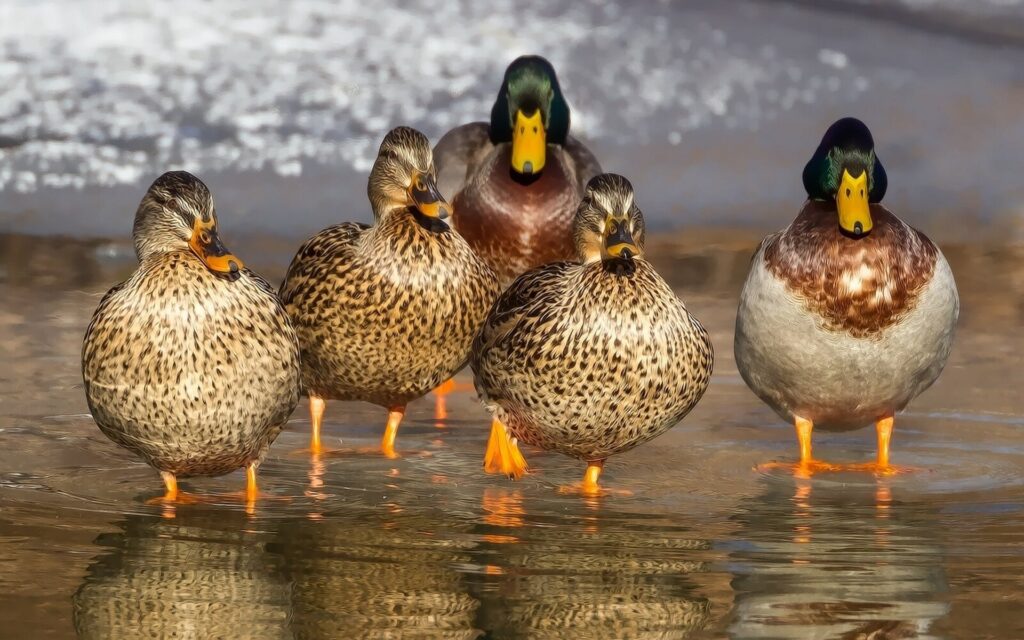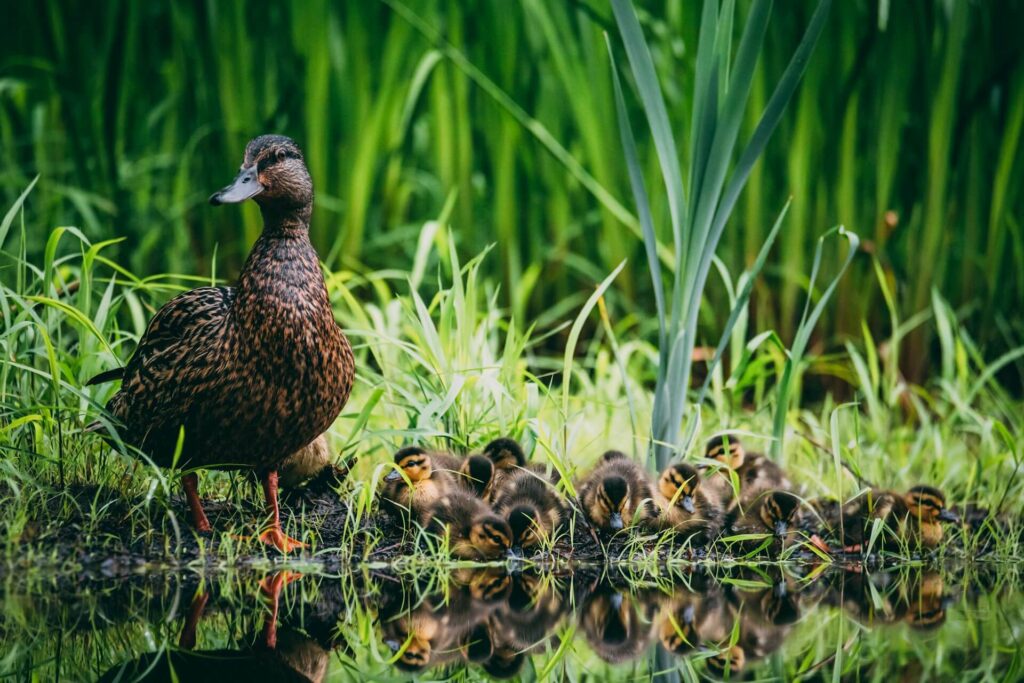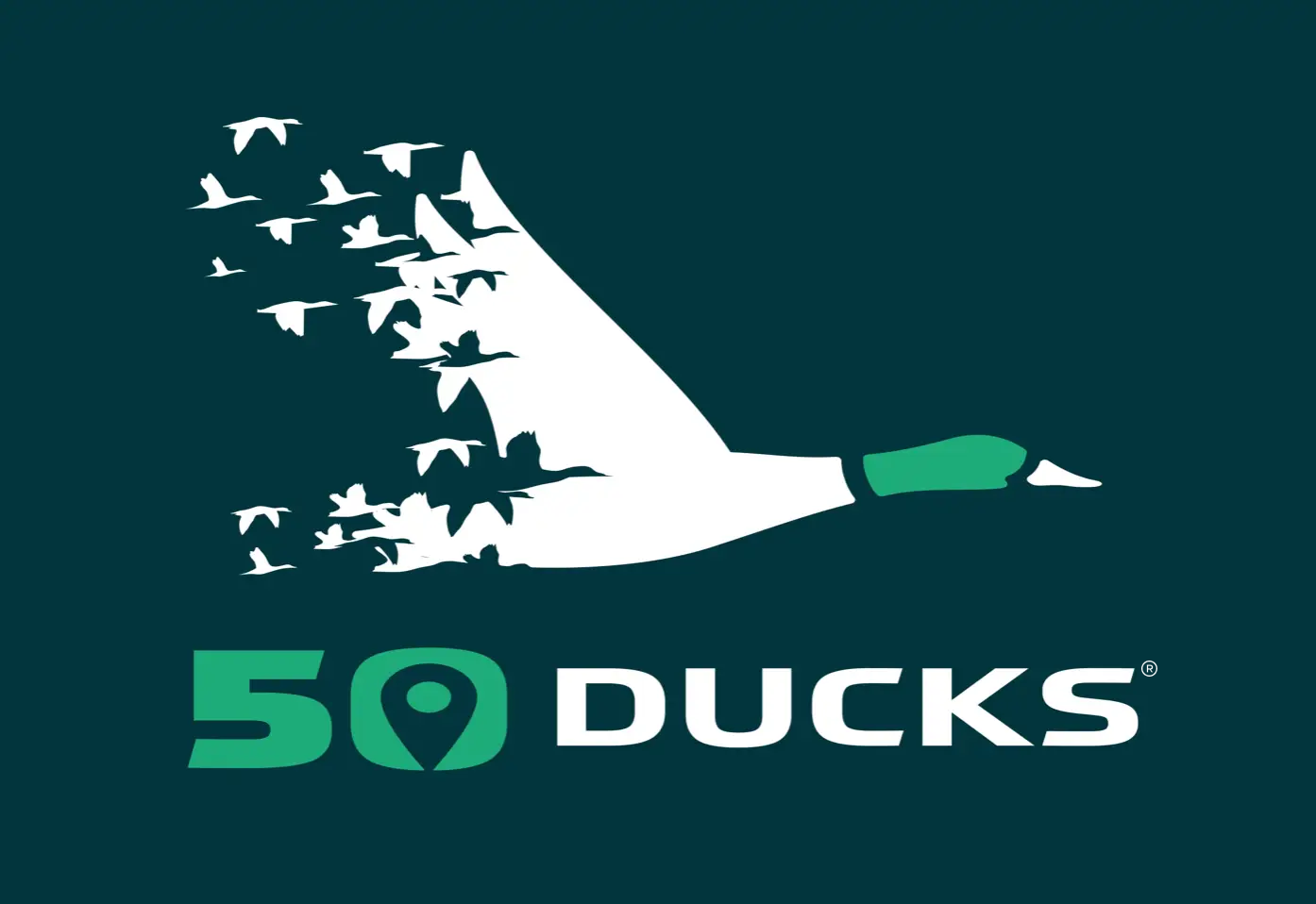Top 5 Benefits of Ducks: How Preservation Empowers Local Communities
Greer Smith
November 27, 2023

1. Ducks Protect Local Environments
One of the remarkable benefits of ducks that often goes unnoticed is their role in natural pest control. These charming waterfowl are more than meets the eye – they eagerly devour a wide range of pests, making them formidable allies for organic pest management. From small snakes to worms, beetles to crickets, and even grasshoppers, duck appetites are insatiable.
Muscovy ducks even help control ticks, a task rarely achieved by other fowl such as chickens. By feasting on these bothersome insects, ducks help maintain vibrant local environments by keeping harmful pests in check. Ducks are not just waterfowl but effective contributors to the overall well-being of multiple ponds, watering holes, and bottomland hardwood forests.
Beyond their pest control prowess, ducks also contribute to wetland conservation. Large gatherings often drive venomous and non-venomous snakes away and wreak havoc on tadpoles. Their foraging habits aid in nutrient cycling, with duck manure providing valuable nutrients for plants and crops, offering a natural fertilizer solution for the local environment.
2. Species Distribution From Wetland to Wetland

Ducks serve as remarkable agents of biodiversity through their role in facilitating the distribution of new species from wetland to wetland. Through the ingestion and subsequent excrement of seeds in different locations, connecting isolated habitats and preventing local extinction become undeniable benefits of ducks.
Mallard and other waterfowl species act as messengers that maintain the vitality of diverse ecosystems. In addition to seed dispersal, ducks also transport other organisms. When encountering newly restored habitats, they bring plant species, invertebrates, amphibians, and fish from other sites. Frog eggs, insect larvae, and seeds that survive the journey through a duck’s digestive system end up in several distant locations.
This interconnectedness facilitated by ducks is a prime example of why waterfowl are important to local habitats. It restores wetlands for the long-term survival of various species and promotes genetic diversity.
3. Maintain Ecosystems & Biodiversity
The benefits of ducks go much further than mere picturesque figures on tranquil waters. They are indispensable and deeply ingrained in the intricate tapestry of the food web. Ecosystems transfer energy from one species to another, forming essential connections in the complex food chain. In ponds, lakes, and marshes, you’ll find that ducks eat living organisms at every level.
In addition to their role in the food web, ducks contribute to ecotourism. They attract conservationists and waterfowl hunters who help manage the proliferation of harmful invasive species. The presence and observations of ecotourists can uncover hidden issues no one else is aware of. By recognizing and reporting these problematic species to local authorities, waterfowl enthusiasts help keep habitats in check for native flora and fauna.
In the grand scheme of things, the health of local ecosystems correlates to the well-being of duck populations. Thriving duck populations are a sign of vitality and a driving force behind it. Where you find large gatherings of ducks, wetland health tends to be in better condition. Ducks and their instincts help regulate local food webs, and human intervention through ecotourism helps preserve balance.
4. Provide Extra Protection Against Predators

In the intricate tapestry of ecosystems, ducks emerge as more than participants. They are guardians that provide additional layers of protection against potential predators. Nest protection is mandatory to protect their offspring, and ducks carefully select nesting sites that enable them to vigilantly watch for unwanted raccoons, snakes, skunks, and other birds.
Ducks also serve as nature’s alarm system. Their keen senses and sharp calls do more than protect their brood. They alert nearby species to potential dangers. In this way, ducks offer a valuable service, enhancing the overall safety of local wildlife. The mere presence of ducks in an area deters certain predators. When ducks gather in large numbers, they create an environment inhospitable to potential threats.
5. Contribute Revenue to Local Economies
Ducks, with their unassuming splendor, have the power to make a significant economic impact on local communities. As ecotourism attractions, particularly for birdwatchers and nature enthusiasts, their presence draws visitors to the area. Birdwatchers, who invest in their hobby through travel, equipment, and memberships, contribute to the local economy.
Recreational activities centered around duck hunting, in particular, have a substantial financial influence, as hunters spend on travel, licensing fees, private hunting services, and various equipment. Educational programs and guided tours are subsequent benefits of ducks that hold economic value, as they enrich the waterfowl experience.
The list goes on as the hospitality industry, local restaurants, bars, and shops that sell duck-themed merchandise each benefit from ecotourism. Duck enthusiasts seek out clothing, accessories, and decor related to these remarkable birds. Wrapping Up
In conclusion, ducks prove to be invaluable assets to our local communities. They help maintain ecosystem health, restore biodiversity, protect against predators, and contribute to our local economies. With conservation efforts and ecotourism, local economies position themselves to prosper.
Become a steward of the environment and champion waterfowl conservation and their habitats today. Together, we can make a difference in preserving the benefits of ducks while reaping the financial rewards. Join our mailing list today for live duck updates!
